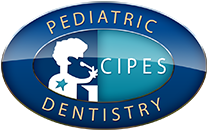Eruption of baby teeth

Parents of infants and toddlers often have questions about teething and whether their child’s teeth are erupting normally. Of course, there is considerable variability as to when an individual child’s teeth erupt. Teeth can begin to appear any time between the age of 4 to 15 months and by the age of 3 nearly all children have a complete set of 20 primary teeth. Permanent teeth begin to appear around 6 years of age. If a child has no teeth by the age of 18 months they should be evaluated by a dentist. A number of things can cause delayed eruption. Sometimes late eruption is simply a family trait. Premature and low birth weight babies may also experience delayed eruption as well as enamel defects. Occasional rare genetic abnormalities or nutritional deficiencies can result in late eruption of teeth
At times, the chronology of tooth eruption exhibits a significant alteration in onset so that teeth are present at birth or appear during the first month of life. The decision to keep or extract a natal or neonatal tooth should be evaluated in each case keeping in mind scientific knowledge, common sense and informed parental preference. Factors such as strength of attachment, degree of mobility, interference with breastfeeding, the possibility of traumatic injury and whether the tooth is part of the normal dentition or is supernumerary should be considered in deciding whether to maintain these teeth in the oral cavity. Ideally, when well implanted, these teeth should be left in the arch and their removal only indicated when they interfere with feeding or when they are highly mobile.

